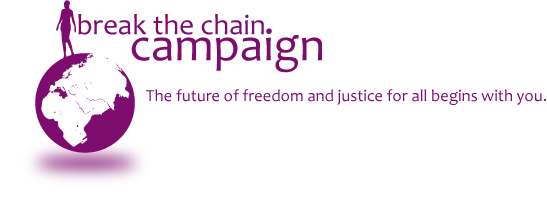Trafficking and You
 Monday, June 28, 2010 at 3:30PM
Monday, June 28, 2010 at 3:30PM
Posted by Caroline Talev, Domestic workers health Center Intern
The U.S. State Department’s Trafficking in Persons Report for 2007 estimates approximately 800,000 trafficking victims each year, nearly 17,000 people here in the United States. As we live our lives and do our daily routines, what do these statistics mean to us? On the Florida farm where our tomatoes grow, workers are being held in debt bondage and restricted from drinking water or taking breaks. Down the street from our home in Maryland, a woman is making $1 an hour as a live-in nanny for a wealthy family. At a local restaurant, a cook is working 90 hours a week. When he isn’t working, he is escorted back to living quarters arranged for him by his boss. We have heard all of these horror stories but the question is how can we help?
Domestic workers health Center typically handles cases of trafficking in the domestic worker industry. This can be difficult to identify because the worker may primarily be in the trafficker’s home. While many trafficked domestic workers are physically or psychologically restrained in the home, some who may be "free" may not come forward for a variety of reasons: language barriers, threats of violence, fear of police, fear of deportation, and general fear of the trafficker and the consequences. Others have developed bonds with the family, despite the abusive situation, because of their care-taking responsibilities with children.
The first step to help is to Be aware of your surroundings and look for warning signs that a person could be trafficked at the particular location in question. Look for heavy security; is it an isolated location or are there barred windows? Do the “workers” live at the site or are they driven back and forth from work and their home? You might encounter health-related "red flags" Look for bruises, broken bones, malnutrition, or bad hygiene. Pay attention to see if the worker is under surveillance. For instance, the trafficker may escort them places and act as their translator. Keep in mind that all trafficking does not involve physical abuse, and use your instincts.
It is very important not to press a trafficked person to tell you their story. Rather, contact trained professionals who have learned interviewing methods that reduce re-traumatization. Call the National Human Trafficking Resource Center at 1-88-3737-888.
Remember, many survivors have escaped and rebuilt their lives because of tips from community members, like you!


Reader Comments